How Russia conquered the fragments of the great power of the Mongols
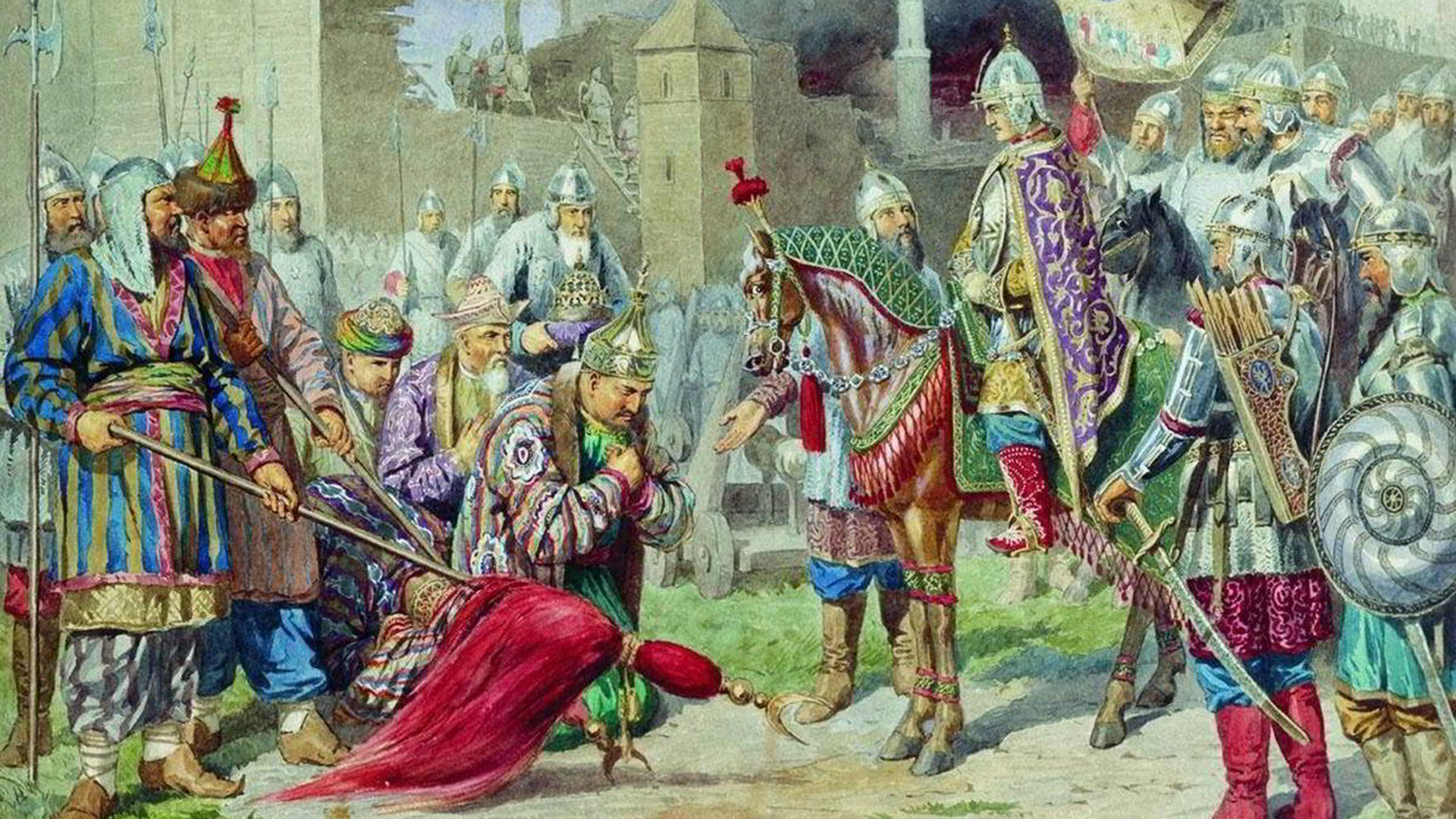
During the Great Western Mongol Campaign of 1236-1242, Russian principalities were subjected to terrible devastation and fell into political and economic dependence on the nomads for over two centuries.
Who would rule in Rus’ and how much tribute he would pay to the khans was decided in the powerful Mongolian state of the Golden Horde, whose borders stretched from modern Moldova to Western Siberia.
At the end of 14th century, the Golden Horde entered a period of decline and, by the middle of the following century, fell apart. A number of Turkic-Tatar khanates arose on the territory of the mighty state that had sunk into oblivion. Almost each of them considered themselves the true heir to the Mongol Empire.
At the same time, the reverse process was taking place on Russian lands - a centralized Russian state was being created. Ultimately, it became so strong that it took over the legacy of the Golden Horde. Although, this process dragged on for several centuries.
Kazan Khanate
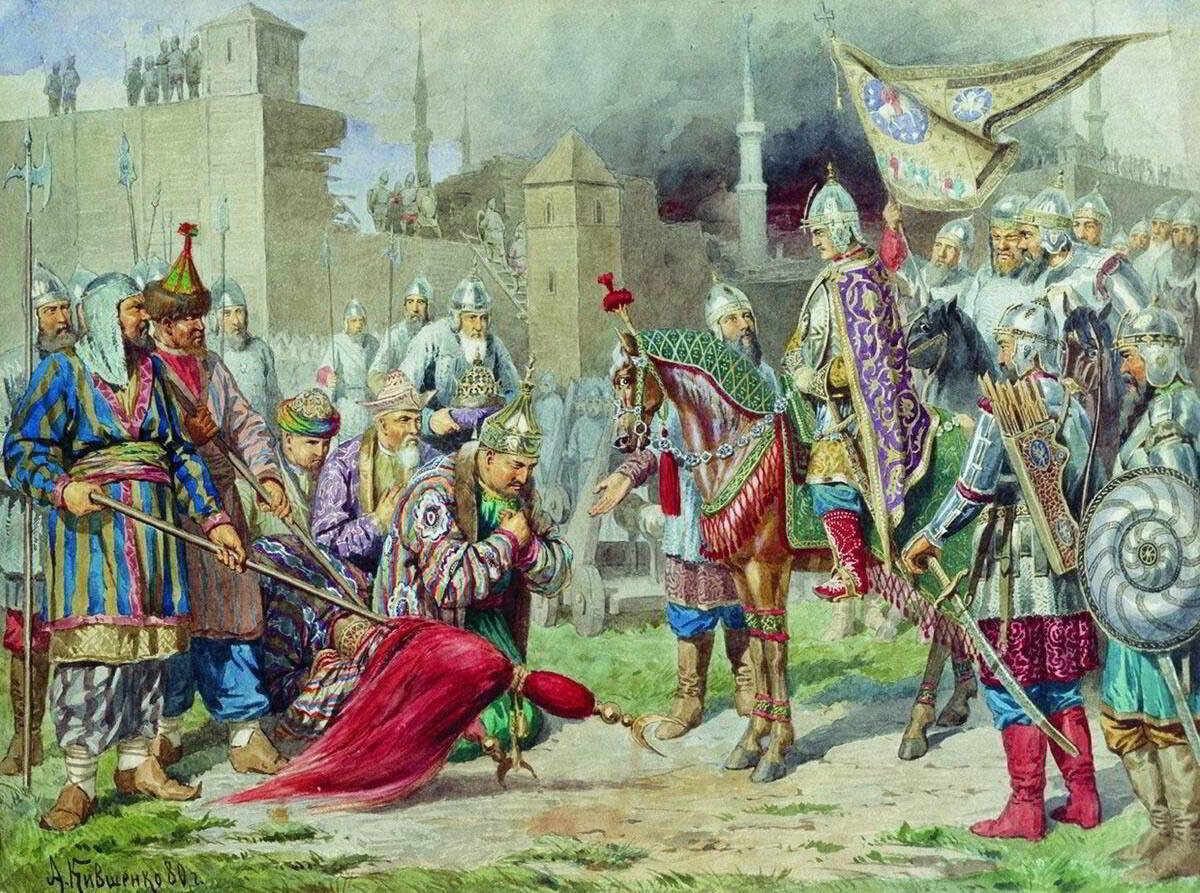 The surrender of Kazan to Ivan the Terrible.
The surrender of Kazan to Ivan the Terrible.
Kazan was the closest of the large fragments of the Mongol power to Moscow. It was the first to fall under the blows of the Russians.
For more than a century, the sides were in brutal confrontation with each other, marked by short-term devastating raids and full-scale wars. There was also a diplomatic game going on - part of the Kazan political elite was pro-Moscow, while others were oriented towards the Crimean Khanate.
In 1487, Grand Duke of Moscow Ivan III managed to take Kazan and establish a protectorate over the khanate, which lasted for several decades. However, only his grandson, Tsar Ivan IV, was able to finally subdue the longtime enemy during the so-called Third Kazan campaign in 1552.
Astrakhan Khanate
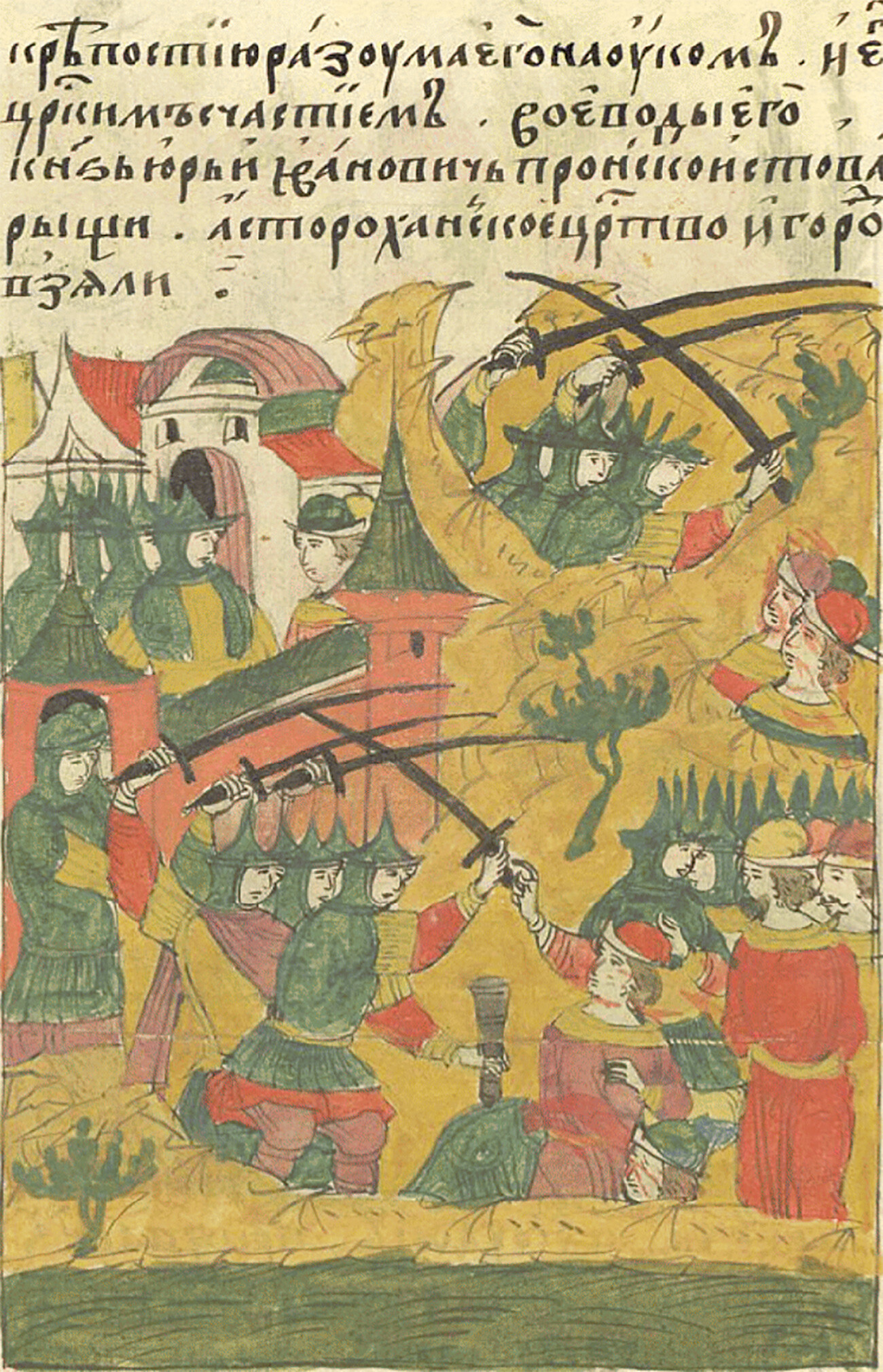 Capture of Astrakhan.
Capture of Astrakhan.
Almost immediately after Kazan came the turn of the Astrakhan Khanate. Feeling the growing danger from Moscow, the rulers began to seek an alliance with the Crimean Khanate and the Ottoman Empire. But it didn’t help them.
In 1554, the first campaign of Russian troops took place against the capital of the Khanate - Hadji-Tarkhan (Astrakhan). The reason was the arrest of the Russian diplomatic mission by order of Khan Yamgurchi.
The campaign turned out to be successful, Yamgurchi fled and Russian protégé Dervish-Ali assumed the throne. However, as he also soon began to focus on Crimea, a new campaign and capture of the capital followed. In 1556, the Astrakhan Khanate ceased to exist.
Siberian Khanate
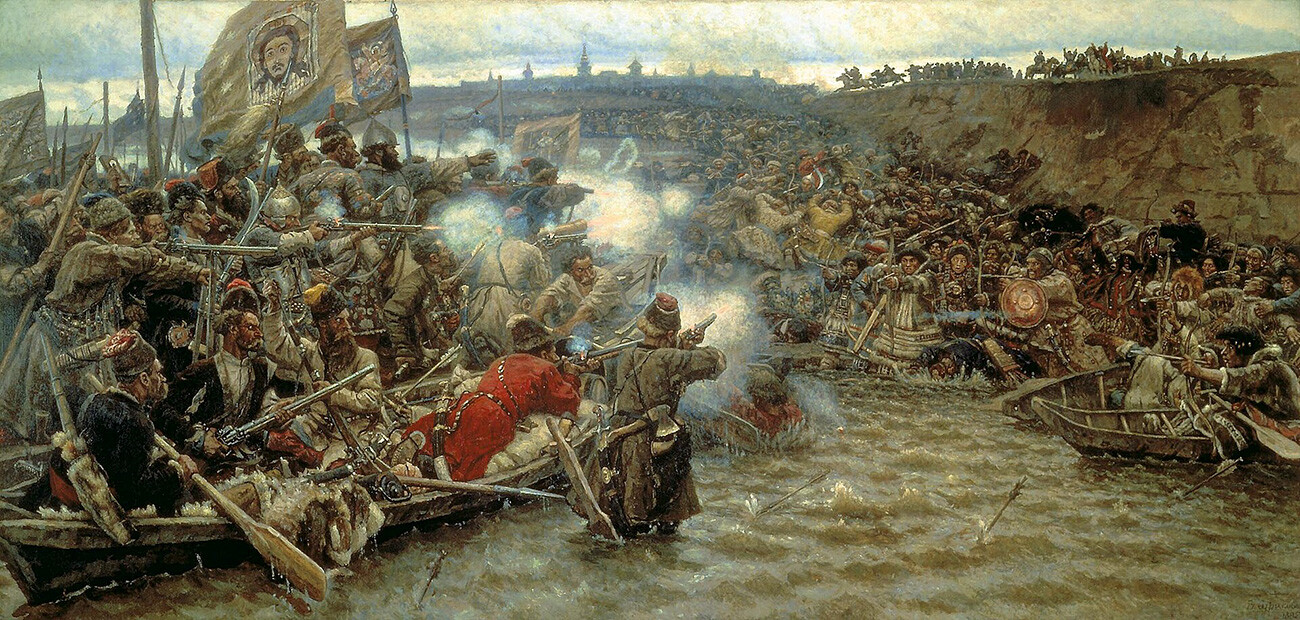 The Conquest of Siberia by Yermak Timofeyevich.
The Conquest of Siberia by Yermak Timofeyevich.
Unlike Kazan and Astrakhan, the conquest of the Siberian Khanate didn’t begin on the tsar's initiative. The campaign of Ataman Ermak's Cossack army against it was sponsored by the wealthy Stroganov merchants, whose holdings in the Urals were subject to regular attacks by the Tatars.
In November 1582, the Cossacks took the capital of the Khanate of Kashlyk (near the modern city of Tobolsk), forcing Khan Kuchum to retreat into the steppes. Yermak was unable to crush Kuchum completely and, in 1585, died in an ambush organized by the khan.
However, the road to Siberia was already open for the Russian state and, after the Cossacks, numerous military contingents with tsar's ‘voevods’ (military commanders) at the head flocked there. By the end of the 16th century, the subjugation of the Khanate was completed.
Crimean Khanate
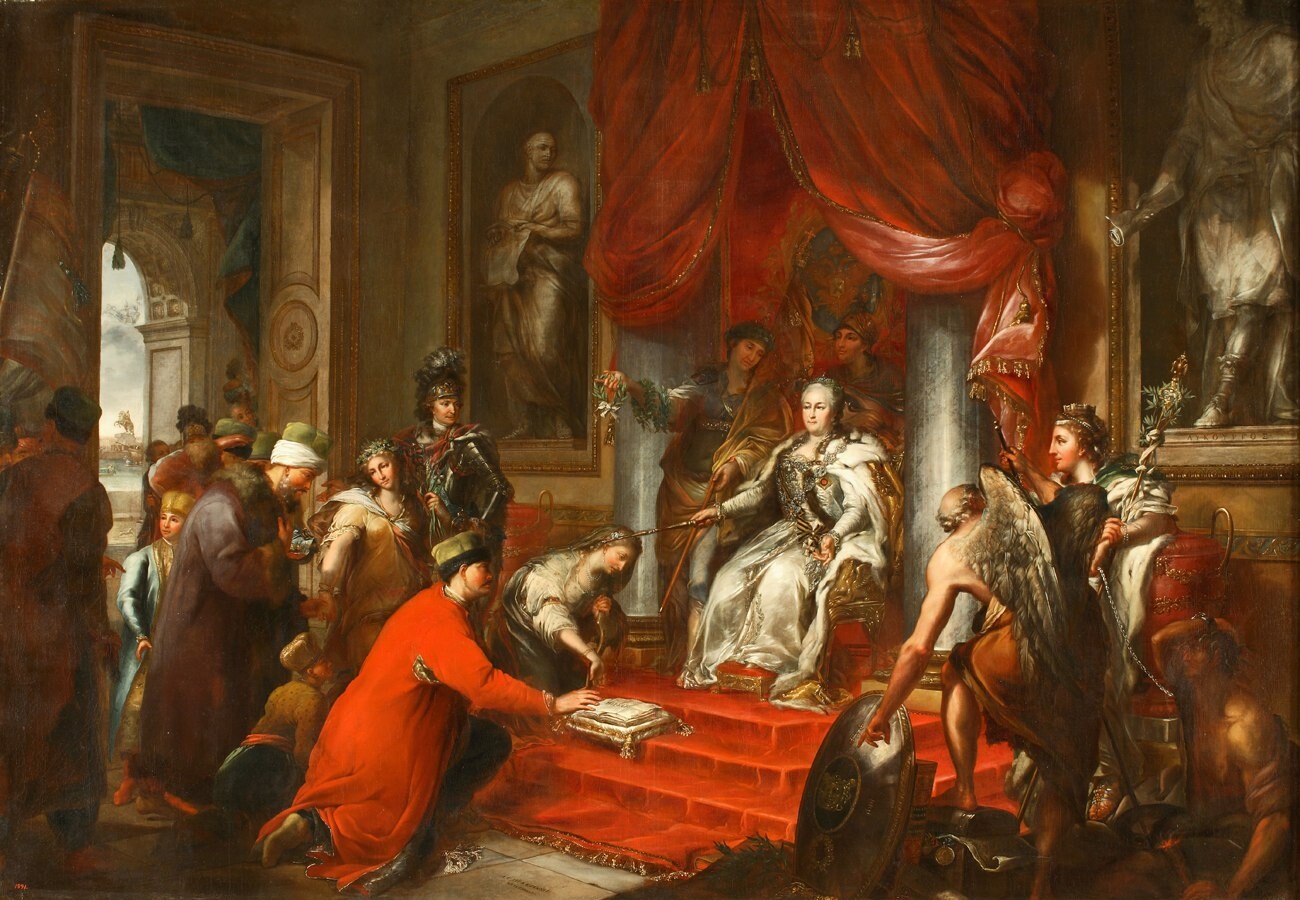 Catherine II gives laws to Taurida.
Catherine II gives laws to Taurida.
Crimea turned out to be the most powerful fragment of the Golden Horde, which, with its devastating raids, caused much trouble to the Russian state. In 1571, Khan Devlet Geray even managed to burn down Moscow.
The Tatars felt themselves completely safe on the peninsula. Since the end of the 16th century, the Ottoman Empire had been providing its patronage the Khanate. Although the khans occasionally did try to get rid of the intrusive guardianship of the sultans.
The fate of Crimea was decided in the 18th during several Russian-Turkish wars. In 1736, Russian troops first invaded the peninsula and even burned the khan's capital of Bakhchisarai. In 1774, Russia achieved independence of the khanate from the Ottoman Empire and, in 1783, finally annexed it.

